Columns
The three Rajapaksa brothers nailed on Supreme Court cross
View(s):
- ‘We must start the recovery process from those who have been held responsible by the Supreme Court,’ MP Sumanthiran tells Parliament
 It’s now official. Signed, sealed and delivered by the highest legal authority in the land. A five-judge bench of the Supreme Court, with one dissenting judge, found Mahinda Rajapaksa, Gotabaya Rajapaksa, Basil Rajapaksa and five others, including Nivard Cabraal as the men responsible for the economic catastrophe that had made the nation bankrupt.
It’s now official. Signed, sealed and delivered by the highest legal authority in the land. A five-judge bench of the Supreme Court, with one dissenting judge, found Mahinda Rajapaksa, Gotabaya Rajapaksa, Basil Rajapaksa and five others, including Nivard Cabraal as the men responsible for the economic catastrophe that had made the nation bankrupt.In a landmark judgment delivered on Tuesday by Chief Justice Jayantha Jayasuriya, with Supreme Court justices Vijith Malalgoda, Buwaneka Aluwihare and Murdhu Fernando agreeing, the law lords held that the Rajapaksa triad’s conduct had directly led to Lanka’s economic catastrophe.
Along with the Rajapaksa brothers, five senior officials were also held responsible. They were Central Bank Governors Ajith Nivard Cabraal and Prof. W.D. Lakshman, former Secretary to the Ministry of Finance, S.R. Attygalla, former Secretary to the President, P.B. Jayasundara and Samantha Kumarasinghe of the Monetary Board.

CHIEF JUSTICE JAYASURIYA: Delivers judgement
The court found they had violated public trust and breached Article 12(1) of the Constitution, in their administration of the economy, leading to the economic crisis in the country. It also stressed that public officers have a responsibility to discharge their duties in the best interest of the public. They are bestowed high power to uphold public trust and are dutybound to discharge duties according to constitutional directives.
The court noted that they ought to have known and should have taken action to resolve matters that negatively impacted the economy. Not further aggravate the impact. They were responsible to act in the country’s best interest.
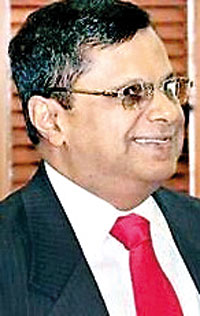
JUSTICE MALALGODA: Agrees
However, the court specifically cleared Sanjeeva Jayawardena PC and Ranee Jayamaha of the Monetary Board of any responsibility for the economic collapse since they had taken all steps to forewarn the authorities of the imminent disaster.
Article 27 of the Constitution which deals with Directive Principles of State Policy and Fundamental Duties, which spells out among a host of duties, the State’s duty to ensure for citizens adequate food, clothing and housing, had for long been regarded as a mere ornamental piece of purple prose in the Constitution purely to embellish it with the noble aspirations it strove to attain.
This had been mainly so since it and its complementary Article 28 had been specifically ruled by the subsequent Article 29 as not conferring legal rights and unenforceable in any court. But this Tuesday, Article 27 came alive and assumed a distinct life of its own when it was used as the anvil to nail the blame on the three Rajapaksas and the others.
Quoting Supreme Court Judge Prasanna Jayawardena PC in Ravindra Gunawaradane Kariyawasam v CEA case in 2015, who had said, ‘The directive principles of State policy are not wasted ink in the pages of the Constitution. They are a living set of guidelines which the State and its agencies should give effect to’, Chief Justice Jayasuriya held that the Rajapaksa brothers and the officials had failed to uphold Article 27 Constitutional pledge to provide the citizenry with adequate essentials by depriving them the same during this unfortunate period.
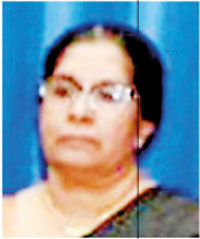
JUSTICE FERNANDO: Agrees
This was ‘due to mishandling of the economy when it was within the full power of the respondents to take meaningful action to prevent such a calamity’.
The Chief Justice declared: ‘They cannot shirk their responsibilities by merely claiming that the decisions that were taken were “policy decisions” they were entitled to take. On assumption of public office, it was their duty to ensure that the existing issues were addressed and resolved in the best interest of the country and take every possible measure to avoid an aggravation to the detriment of the people.’
The judgment, though directed to the immediate respondents, has a far-reaching impact on present and future public officials from the President downwards since it held:
- ‘Public trust reposed on them demands resolving of issues. Any conduct which is manifestly unreasonable, arbitrary or irrational that would lead to further aggravation of issues which are detrimental to the public, tantamount a breach of the trust bestowed on them.’
- ‘This is not the recognition of a ‘new right’ – a right to infallible decisions by the public authorities – but recognition of public officers requiring to discharge their duties to the satisfaction of their inherent core obligations, with due respect to the public trust reposed on them’.
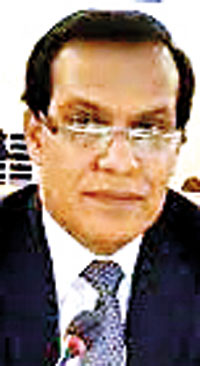
JUSTICE ALUWIHARE: Agrees
- ‘The trust reposed in the respondents was not a higher principle or epithet unique to their offices. ‘Public trust’ is an inherent responsibility bestowed on all officers who exercise powers which emanate from the sovereignty of the People’.
Though the dissenting judge, Justice Priyantha Jayawardena PC was of the view that the petitioners had not established on a balance of probability that the three Rajapaksa brothers and the named officials, including Nivard Cabraal had infringed the Fundamental Rights of the petitioners, the rest of the Supreme Court’s five-judge bench led by Chief Justice Jayantha Jayasuriya were of the view that Mahinda Rajapaksa, Gotabaya Rajapaksa, Basil Rajapaksa, Nivard Cabraal, P.B. Jayasundara, W.D. Lakshman, S.R. Attygalla, Samantha Kumarasinghe and the Monetary Board, had violated the Public Trust reposed in them.
The Supreme Court, in its 120-page majority judgment held that these eight men ‘by their actions, omissions, decisions and conduct have demonstrably contributed to the economic crisis.’
The stunning indictment on the Rajapaksa oligarchy damns the political future of Mahinda, Gota and Basil and casts doubt on their political legitimacy to ever hold public office. It has led to calls from civil activists for their civic rights to be removed. COPE Chairman Ranjith Bandara’s vain attempt to defend the Rajapaksa’s condemned action of abolishing PAYE taxes was denounced by SJB MP S.M. Marikar as one which had cost the Treasury Rs. 650 billion. He demanded a criminal trial to be held against them.
But the supreme message delivered from the ermined bench seems not to have yet seeped into Mahinda Rajapaksa. The day after the Supreme Court verdict, he slipped into the familiar robe and role of the pious and pilgrimaged the sacred Sri Dalada in Kandy with the other two Rajapaksa brothers Gota and Basil, where he held a mid-day almsgiving for a large number of monks and was compared to 19th century nationalist hero Keppettipola.
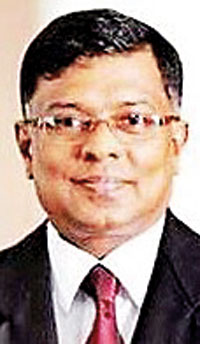
JUSTICE JAYAWARDENA: Disagrees
Addressing reporters in the precincts of Lanka’s most sacred shrine, he said he had come on account of his birthday – which fell on November 18 – and told the media that he accepted the Supreme Court decision but not some of its points. He said he will explain it when he gets the opportunity.
Bit too late for that, isn’t it? He got the opportunity on 2nd October when his lawyers filed their written submissions in court. He also said he would always appear on behalf of the people, perhaps not realising the full measure of the destruction he had already wreaked on them.
The Court, however, was restrained from awarding compensation. The Petitioners hadn’t asked for any. The four petitioners had all appeared before the Supreme Court not seeking monetary recompense but praying for justice. And they received justice in abundance. And that for them sufficed.
The Court noted: ‘None of the petitioners are claiming any loss had impacted on the petitioners on an individual basis but their assertion is as a result of the conduct of the respondents the entire citizenry had to undergo hardships which could have been avoided’. Thus the court held that it would not be appropriate to order the respondents to pay compensation to the petitioners and as such we are not inclined to order compensation.
But had they prayed for it and had the Court granted them their prayer and ordered the Rajapaksas to pay compensation in billions for the havoc they had caused to 22 million innocent victims by wrecking the Lankan economy – as Maithripala had been ordered to pay Rs.100 million as compensation to Easter Sunday bomb’s 269 victims – and had the Rajapaksas, for reasons of their own, been unable to pay, they would then have faced a possible jail sentence for disobeying the Supreme Court order.
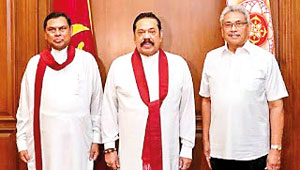
TRINITY OF POWER THAT WREAKED RUIN: Mahinda, Gotabaya and Basil Rajapaksa named by the Supreme Court as the men who by their ‘continued inaction and callous disregard to take remedial measures breached the public trust reposed in them by the people’
So what’s next? Does it mean the court decision will only remain as a precedent for future presidents, ministers and public servants not to abuse the official power bestowed on them? Only to deter them from receiving a judicial rebuke in the event they do?
Not so. TNA MP, Attorney-at-Law Sumanthiran told Parliament on Wednesday: ‘This is not the end. We must now start the recovery process from those who have been held responsible by the Supreme Court. The country’s economy collapsed because the country’s money had been stolen by them and sent abroad. Every citizen in this country is now entitled to make that claim, to ask them to bring that money back and make the economy rise again.’
But until legal-eagles burn the midnight oil seeking legal avenues to turn the judgment into tangible benefits, we should be thankful that justice was done and seen to be done, even though the injustice the Rajapaksas had waged upon 22 million people of this country remains unpaid in coin.
| Why did the prof’ scratch his nose at COPE’s Cricket Board inquest?COPE chairman Professor Ranjith Bandara’s strange nose twitch or itch at the inquiry into the Cricket Board has led to the suspension of further sittings by the Speaker after an outcry by opposition MPs who alleged that the chairman’s subtle action with his forefinger was hand signals directed to the Cricket Board members not to answer certain questions. SJB leader Sajith Premadasa told Parliament on Wednesday that, ‘the COPE chairman, using hand signals, advised SLC members not to answer questions raised by MPs at Tuesday’s meeting. This is clearly visible in the videos.’ He alleged, Prof Bandara acted as if he had been bought over by the SLC’. 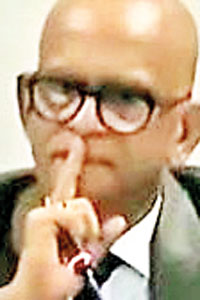 COPE CHIEF BANDARA: Scratch or signal He charged: ‘The COPE Chairman uses his position to manipulate the testimonies by the witnesses at the COPE meetings. He has violated the privileges of not only MPs Hesha Withanage and S.M. Marikkar but also all members of this House. This matter needed to be investigated.’ SJB MP Hesha Vithanage said, ‘COPE has summoned SLC on November 24, 27 and 28. We request that Prof. Bandara is removed temporarily and an acting Chairman be appointed’. MP S.M. Marikar said he and some other members of COPE do not want to participate in any probes on SLC with Professor Bandara in the chair while MP Chaminda Wijesiri accused Professor Bandara of violating the privileges of COPE members and demanded the chairman be dealt with under Section 18 of the Privileges Act. Even government MP Premanath Dolawatte wanted the COPE Chairman removed. He said: ‘the government will not object if the Opposition MPs move a motion to remove the incumbent COPE Chairman. I, too, saw the video and it is clear that the concerns raised by the Opposition MPs are genuine.’ The matter was further compounded by the presence of a mystery figure in the COPE proceedings, who was later identified as the COPE Chairman’s son. What was he doing there? Was he on vacation from the US where he was studying and volunteered to contribute his time and expertise for a few days and assist his papa in the crucial engagement for which neither the Government nor any other body expended a single rupee on his behalf either for his involvement in these engagements or at any other time, as Foreign Minister Sabry had explained the similar presence of his son in the official delegation at the United Nations in September? No, the explanation was more pedestrian. Bandara said his son was there as his media officer. When the opposition MPs complained, Speaker Mahinda Yapa Abeywardena agreed with them it was wrong and gave his assurance that the matter would be probed. He said, ‘It is wrong if the COPE Chairman’s son Kanishka Bandara participated in the committee meeting on Tuesday. It has been informed that he has come in the capacity of Professor Bandara’s media officer. A probe will be conducted into the matter anyway.’ A document that surfaced in social media also put the COPE chairman in a spot. It claimed he had been a consultant for the Cricket Board’s Kandy Cricket Campus project in 2018. It claimed Professor Bandara had sat for meetings with SLC CEO Ashley de Silva, Professor Asoka Tillakawardane who has been the project manager, Sunil Ariyaratne, Janaka Kuruppu coordinator to Project Manager. Professor Bandara told the Daily Mirror that he did get involved in the project back in 2018 but kept away from the project once he became an MP. He said: ‘I developed the concept of Kandy Cricket Campus but I did not accept any payment for it. I worked on a voluntary basis.’ Sajith Premadasa further charged that it has also been found that the Colombo Business School, headed by Professor Bandara, has reached a business deal with the Cricket Board. Far too many allegations have been cast on his conduct that Bandara’s position as COPE’s Chairman seems no longer tenable and he should go. On Friday the Speaker suspended further COPE sittings stating, ‘until issues pertaining to its chairman are resolved.’ Perhaps all the hullabaloo that has effectively stalled the Parliamentary inquiry to a halt, suits the Cricket Board’s agenda just fine.
| |
Buying or selling electronics has never been easier with the help of Hitad.lk! We, at Hitad.lk, hear your needs and endeavour to provide you with the perfect listings of electronics; because we have listings for nearly anything! Search for your favourite electronic items for sale on Hitad.lk today!


Leave a Reply
Post Comment